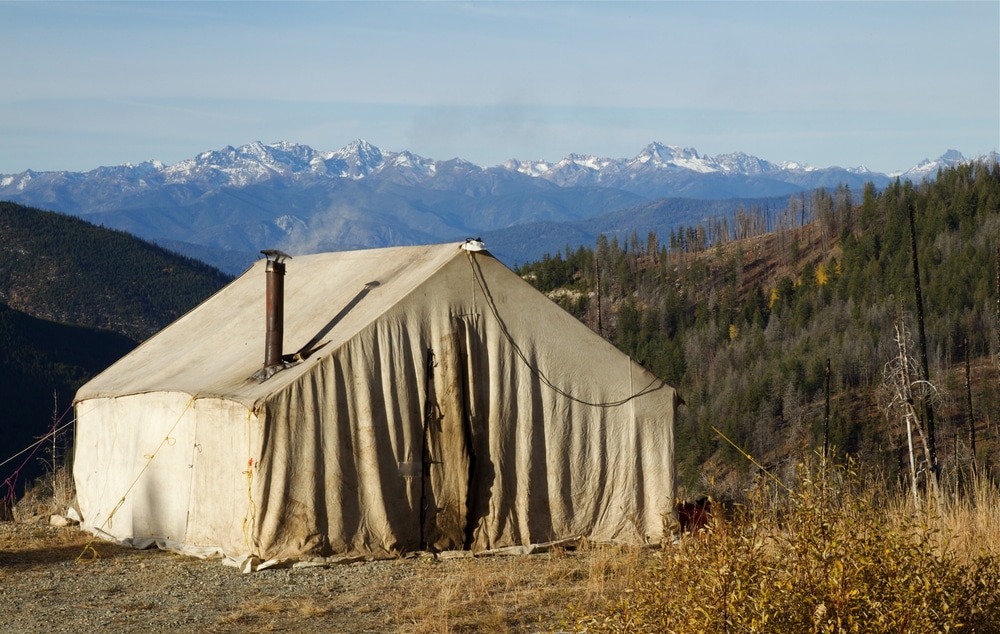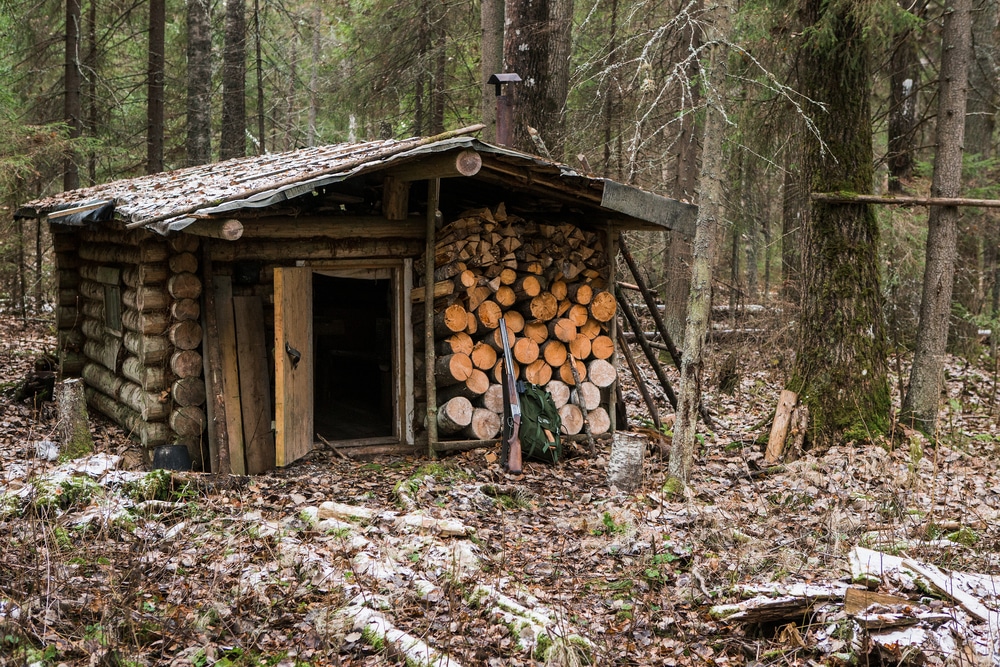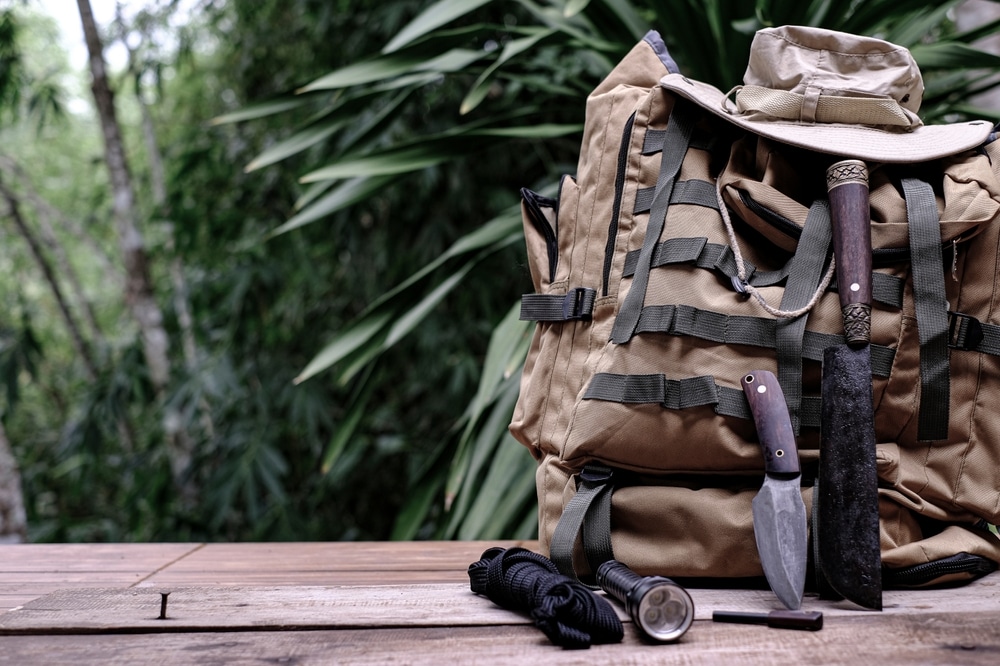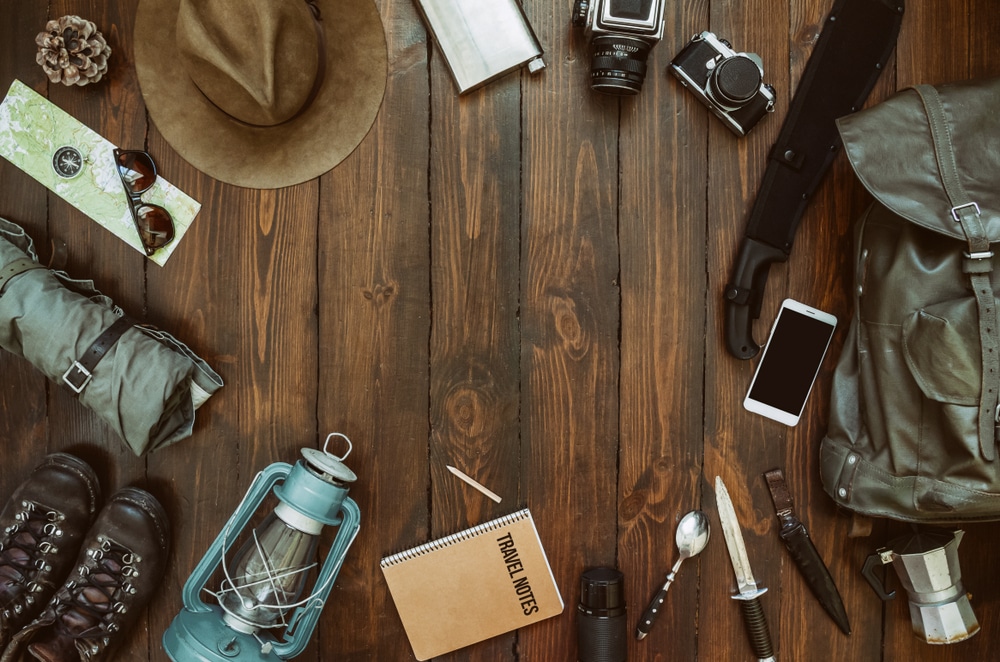Table of Contents
Every hunting adventure is a thrilling and rejuvenating task for hunt lovers. From picking out the best spots to picking up the important items, every step is important. Now, are you fiddling with how to set up a basecamp for hunting? Don’t worry as we have a lot of tips and tricks that can help you create a robust and functional hunting camp. With this article guide, you can embark on your journey of hunting thrill during the day and connect with nature in the evening when you have set up a sturdy camp. So, without further ado, let’s get into the guide for hunting camp gear tips.
What is a Hunting Camp? Grasp the Concept

Before delving deep into the hunting camp ideas, it’s important that you know what is a hunting camp really. Basically, it is an improvised shelter set up in the woods with the sole purpose of serving hunters during the hunting seasons. For hunters, it serves as a base of operations from which they can start their adventures in the great outdoors. A hunt camp usually consists of a series of tents or cabins equipped with basic amenities, including sleeping areas, kitchens, and places to store hunting gear.
At these camps, hunters get together to plan their hunts, exchange tips and stories, and deepen their bonds through a shared love of the activity. Hunt camps also allow hunters to get lost in nature while hunting their prey, providing a sense of adventure and companionship. Despite being far from the hunt, these campgrounds offer hunters a cozy and practical place to rest and plan in between hunts. Before discussing the hunting camp in detail, have a look at hunting tips for birds.
Hunting Camp Site Selection: Finding the Ideal Spot

Do you know that hunting and camping trips can prove to be a lot of fun if you have found the best spot? I think it’s time to look out for the perfect hunting cabin for your thrilling endeavors.
Below are some of the important tips to follow when deciding on a hunt camp:
1. Assess Land Access and Hunting Regulations for Setting up a Hunting Camp
Learn about the local land access and hunting rules before deciding on a place. Check if the land is public or private, then secure any required licenses or authorization.
2. Pick Your Target Game Species
Choose the main game species that you plan to look for in the region. Study their natural surroundings, their favored terrain, and seasonal patterns of migration to find possible camping sites. Additionally, knowing how your target game operates can help you in choosing smart camping locations.
3. Take into Account Terrain and Habitat
Look for possible campground sites that provide your target game species with suitable terrain and habitat. Seek out places with lots of greenery, natural water sources, and wildlife cover. Animal tracks and signs of wildlife activity could indicate suitable areas for hunting.
4. Assess the Accessibility of Your Hunting Camp Site
Determine how easily accessible possible campground places are in terms of parking lots, roads, and trails. Select a spot that is both easily accessible and offers a feeling of seclusion and isolation. Furthermore, accessibility affects how easily you can carry supplies and equipment to the campsite.
5. Safety Considerations
When choosing a camping spot, give careful consideration to potential risks such as steep terrain, unstable ground, or close proximity to bodies of water. Steer clear of regions prone to landslides or flooding. While the thrill of hunting includes adventure, safety should always come first.
6. Choose a Spot for a Hunting Camp with Privacy and Seclusion
For fewer disruptions and to improve your chances of spotting the game, look for peaceful, isolated regions away from busy areas. Seek for areas with low levels of noise pollution and human activity. Seclusion and privacy also improve the natural experience and enhance the appeal of the campground.
7. Environmental Impact
To minimize your environmental footprint, pick a campsite that upholds the Leave No Trace concept. Choose locations that will withstand the impacts of camping without harming native wildlife or natural resources. But never forget to protect and maintain the delicate equilibrium of the ecosystem.
8. Check for Cell Reception
Even though going hunting frequently involves unplugging from technology, it’s crucial to make sure you have basic communication abilities. Check for mobile reception or, if necessary, think about purchasing satellite communication equipment, particularly for security reasons.
9. Plan for Facilities and Amenities Needed in Hunting Camp
Check the accessibility of necessities like water sources, toilets, and places to dispose of waste close to the campsite of your choice. Think about bringing any extra supplies or equipment for convenience and comfort. Preparing a camping scavenger hunt can also make the event much more enjoyable.
10. Consult with Local Hunters and Experts to Find Ideal Hunting Camp Site
It is a good idea if you consult with skilled local wildlife management officials, hunters, or outdoor lovers. They can provide insightful advice, recommendations, and firsthand experience with top hunting spots. Additionally, working in a group increases your hunting approach and your understanding of the terrain.
Essential Gear for Your Ultimate Hunting Camp Adventure

Below is the list of essentials that you should have when planning on setting up a hunting camp:
1. Shelter and Sleeping Gear for Hunting Camp
- Camp Gear: Make sure you have a strong, weatherproof tent that is suitable for your hunting crew in your camp gear. Look for features that can resist several weather situations, such as strong poles, and waterproof materials. In addition, think about how big your tent needs to be in order to comfortably fit your hunting partners.
- Bed Bag: Select a sleeping bag that is suitable for the temperature range of the forecasted weather on your hunting trip. For the most comfortable sleeping experience on peaceful nights in the backcountry, consider variables such as weight and type of insulation.
- Printable Scavenger Hunts: To keep older kids engaged during downtime at the hunting camp, incorporate fun activities like campground scavenger hunts. Camping can be made more thrilling and adventurous with printable scavenger hunt ideas.
2. Clothes and Footwear Needed for Perfect Hunting Camp
- Camouflage Apparel: To fit in with your surroundings, select camouflage apparel that is appropriate for the terrain and vegetation of the hunting spot you prefer. Choose clothing that can soak away moisture to stay dry and comfortable on extended field days. Kids’ scavenger hunts can be an entertaining way to teach them about nature and wildlife.
- Durable Shoes: Invest in hunting boots made specifically for the terrain and climate of the area you plan to hunt. For long walks or wildlife stalking, look for qualities like waterproofing and strong construction that offer support and protection. Outdoor scavenger hunts are another excellent method for learning about the surrounding natural area of your hunting camp.
3. Hunting Equipment Needed for Hunting Camp
- Deer Camp: Choose a firearm or gun that fits your hunting area’s regulations and the kind of game you plan to hunt. To ensure safe and successful hunting, hone your shooting and get familiar with the handle and functionality of the weapon you have selected. Hunting camp meals can be made with items brought from home and portable cooking equipment.
- Camp Meals on the Hunt: To fuel yourself during rigorous days in the field, prepare wholesome and filling hunting camp meals. Consider cooking hearty meals that are simple to prepare on an outdoor burner or over a campfire. While waiting for the game, camping scavenger hunts can also be an enjoyable activity.
4. Essentials of Hunting Camp Cooking
- Camp Meals: During your hunting trip, store perishables in airtight containers or coolers to keep them from rotting. To ensure effective meal planning and preparation, think about arranging food supplies into meal kits or pre-packaged portions. Hard camping scavenger hunts can put competitors to the test by having them locate particular things or finish tasks such as camp cooking.
5. Emergency and Safety Equipment You Might Need in a Hunting Camp
- Printable Scavenger Hunts: Bring lightweight emergency shelter choices to protect you from bad weather and unexpected overnight stays outside, including space blankets or bivy bags. When choosing emergency shelter equipment, take into account elements like packability and insulating qualities. Camping hunt Safety is very important, and having the proper equipment on hand can ensure a trouble-free and enjoyable day in the wilderness.
6: Medical Fix It Kit: Must Have in Hunting Camp
Having an extensive medical and repair kit for your hunting camp is a must if you want to handle minor wounds and equipment failures that are possible while you’re out on the hunt. Here is an in-depth list of things you should put in your kit:
1. Health Care Products
- Bandages: A variety of sticky bandages in different sizes to cover blisters, cuts, and scrapes.
- Sterile gauze pads for dressing wounds and a roll of gauze to keep dressings in place are included.
- Alcohol-based wipes or antiseptic solutions: These are used to clean wounds and prevent infections.
- Adhesive Tape: Bandages and dressings can be secured in place with this waterproof adhesive tape.
- Tweezers: Use fine-tipped tweezers to extract ticks, splinters, and other skin detritus.
- Scissors: You can use these tiny, sharp scissors to cut tape, bandages, and clothing.
- Pain Relievers: Over-the-counter medications like acetaminophen or ibuprofen are used to treat minor aches and pains.
- Antihistamines: Allergy drugs used to treat allergic reactions or insect bites and stings.
- Antidiarrheal Drugs: Medicines to reduce the symptoms of upset stomach or diarrhea.
- Personal Medications: Any prescription drugs that hunters in your group might need.
2. First Aid Tools
- CPR Mask: A portable CPR mask that can be used to help breathing during an emergency.
- Quick Cold Packs: Single-use cold packs for minor ailments such as sprains and strains that need to be treated with cold therapy.
- Splint: A lightweight, moldable splint that stabilizes sprains or fractures until medical assistance is provided.
- Elastic Bandage: This type of compression bandage is used to wrap injured joints and hold splints in position.
- Burn Gel or Ointment: For the purpose of reducing burn discomfort and avoiding infection, apply burn relief gel or ointment.
- Emergency Blanket: A reflective emergency blanket that can be used to treat shock or stay warm in the winter.
3. Fix-It Materials
- Multi-Tool: This adaptable multi-tool includes pliers, a knife, a screwdriver, and additional tools for fixing equipment.
- Duct Tape: This multipurpose tape can be used to temporarily repair tents, equipment, or gear.
- Zip Ties: A variety of sizes of zip ties for fastening objects, and fixing gear.
- Spare Parts: Extra fuses, batteries, light bulbs, or other little parts that often turn up in camping supplies.
- Repair supplies: It is a fabric repair tape for apparel or equipment; patch kits for tents, sleeping pads, and inflated mattresses; seam adhesive for waterproofing seams.
4. Structure and Recordkeeping
- First Aid booklet: Detailed first aid booklet or guidebook that provides treatment recommendations for common ailments and injuries.
- List of Inventory: Make sure you maintain a record of everything in your medical and repair kit, including the dates that supplies and drugs expire. Keep an eye on and refresh your kit frequently to make sure it’s still completely supplied and current.
You can be ready to handle emergencies and equipment repairs with ease, ensuring you and your hunting group a safe and happy outdoor adventure, by putting together well-stocked medical and fix-it kits that fit your hunting camp’s needs.
However, if you want to know about the organizing tips for a hunting camp, check out this article.
Conclusion
Summing up what has been discussed so far, this article covered the hunting camp series in detail. It is an ideal piece of information for those who love hunting tasks. One should have a proper list of gear essentials to enjoy a thrilling hunting trip.
Gear Up for Your Hunting Adventures!


